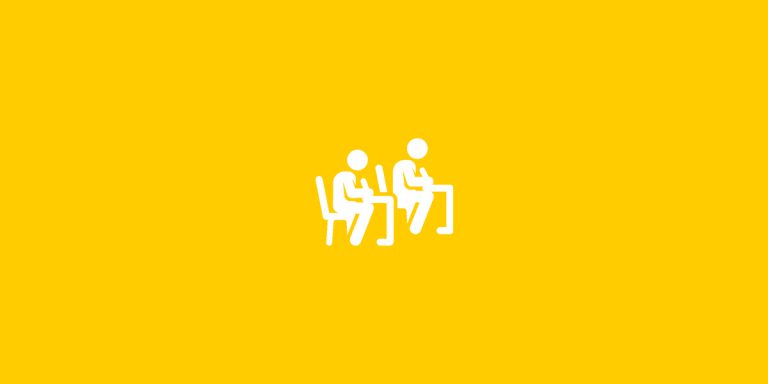How do you decide when to take the SAT? This is a personal decision based on your own preparedness and goals. Before you decide when to take the SAT, there are a few questions you’ll want to ask yourself:
- What are my admissions goals (are you applying early decision? When are the application deadlines for your top schools?)?
- How prepared am I for the test?
- How many times do I plan to take the test?
Answering these questions helps you to develop a clear test-preparation plan to follow. If you break down the questions differently, the plan becomes clear:
- Decide on admissions goals
- Evaluate level of preparedness for test (and begin preparing)
- Decide how many times to take the test
Now, that still leaves some room for questions – how many times should you take the test? How do you prepare for it? And, what we’ve been asking all along: when is the best time to take it?
Tips for Motivating Yourself to Study
The Best Time to Take the SAT Test:
The best time to take the test is when you’ve prepared for it. Now, you may never feel totally prepared – and that’s ok, most people don’t! And “preparedness” also doesn’t mean studying exhaustively for months until you’re burned out. We just mean you need to prepare a little before taking the SAT for the first time.
You’d never run a marathon “just to see what happens.” Similarly, you should never take the SAT “just to see what happens!” You should at least take a practice test before your first SAT. We recommend creating an effective study plan that helps you really learn the material, so you can take on the test with confidence the first time around.
Downloadable Study Guides for the SAT
How much you’re preparing depends on your timeline for taking the test. As you can see in the graphic below, a sophomore doesn’t really need to be studying for the test – while a senior needs to be at peak study capacity:

© The Olive Book 2021
All this being said, if it aligns with your goals, we think one of the best times to take the SAT for the first time is fall of your junior year.
Why You Should Take the Fall SAT
The simple answer is that this gives you more time to adjust, prep, and move forward with more tests as needed. Additionally, you’re likely going to be taking the PSAT in school in October, which is a near-identical test in terms of format and content to the SAT, so your studying will pay off there, too! Most students find that the SAT is easier if they’re familiar with the content of Algebra II, so if you took Algebra II as a sophomore, you can even start studying over the summer. If you’re not taking it until junior year, that’s fine: by the time you take this first test, you’ll be a few weeks into the content and your recently-reviewed Algebra I skills will be refreshed, too.
Thoughts on the Winter or March SAT
Taking your first SAT earlier in your junior year gives you more time to schedule follow up tests, if necessary. If you take a winter test (usually in December, January, and February) or a spring test (usually in March and April), you can use the scores from this test to focus your study for Test #2 in May or June. If you didn’t take Algebra II as a sophomore, taking a winter test gives you time to get some more of the content under your belt, too.
Thoughts on the May and June SAT
Now, the end of the school year does not seem like the ideal time to take the SAT. You’re incredibly busy, knee-deep in finals, and summer break is the light guiding you forward. But taking the test in May or June, when you are focused on school and focused on studying, generally leads to a more focused prep and a more focused test-taking experience. You’re probably operating near a peak performance level, and you’re still operating in a school mindset. You’ve been training all year and your skills are sharp.
However, if studying for the SAT is in any way going to hold you back from achieving your highest possible grades, do not be afraid to skip these tests! Your second semester junior year grades are the last grades some colleges will see, and you want to do everything you can to demonstrate the kind of student you are and potential you have in college. In fact, this semester of grades is probably the single biggest factor you can control right now, so focus on that as much as needed.
Summer and Fall
you want to think about the tests in the summer and fall as backups. If things don’t go as well as you would like during Test #1 (Fall) and Test #2 then there’s plenty of time to get your scores back, make a new plan, do some more focused studying, and then improve your score when you take it again in August or October. If you do decide to take a third or fourth test, be sure to check the admissions deadlines for your school of choice and make sure you will get your scores back in time to submit your application. A lot of schools will still take scores after the application deadline, so you may need to check with each individually
What is a Good SAT Score in 2024?
How Many Times Should You Take the SAT?
So, we just mentioned taking a third or fourth SAT test. But here’s the thing…there is a fallacy going around that says the more times you take the test, the more your score increases. While you may gain a couple of points with each test you take, just taking the test does not measurably improve your score.
The best way to really boost your score is to prepare (study!) for each test you take.
It’s ok to take the test multiple times, and schools understand that you want to take the test multiple times. You can even take the SAT as many times as you’d like. But if you’re preparing well each time you take the test, you shouldn’t need to take it more than three times.
How to Study for Each SAT Test
Here’s what you should do: first, study well for your first test. When you get your scores back, use that information to inform your decision to take the test again. If you’re happy with your score, great! You only had to take the test one time. If you see room to improve and decide to take the test again, that’s also great! Because you studied well your first go-around, you can really focus on what needs improvement for the second time you take the test. After you take the test a second time, you can use the third time you take the test (if you need to) to drill down on very, very specific areas.
Again, just taking the test does not measurably improve your score. Taking the test + effective studying = improved score.
That’s our humble opinion. You can find a dozen different ones on the internet. If you’re not convinced, or if the deadlines have passed, you can still ask yourself these questions to help you decide when to take the SAT:
- What are my admissions goals (are you applying early decision? When are the application deadlines for your top schools?)?
- How prepared am I for the test?
- How many times do I plan to take the test?
Happy studying!













